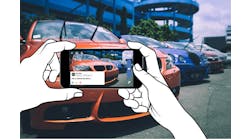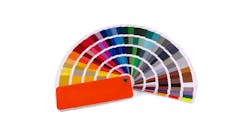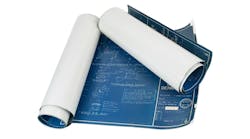As collision repair processes and technology evolve, routine training initiatives are a necessity for shop professionals. But the logistics of following through with training efforts can be draining for technicians, and difficult to manage. Things such as yearlong course planning and expenses associated with registration, travel and lost work hours create blockades. Geralynn Kottschade, co-owner of Jerry’s Body Shop Inc. based in Mankato, Minn., says you can make your shop’s training process run smoother and appeal more to technicians with six simple steps.
Technicians are the heartbeat of the shop; we can’t accomplish anything without them. But we need technicians to be educated, and need them to know how to produce quality work in every repair situation. The most dangerous technician is the one who hasn’t been trained.
Technicians who undergo training efforts improve their skillset and make themselves more valuable to the shop. So it’s only fair to help them get it done. Here’s how:
1. Manage the training. We have one person (for us, it’s a consultant, but it could be a manager, top tech, or other trustworthy staffer) manage and monitor our training efforts. That person is responsible for ensuring that we remain current with I-CAR and paint company courses, and they help technicians know what training needs to be taken in what order. That way, technicians don’t need to keep track of everything on their own, which prevents us from floundering.
2. Pay for the classes. We pay for all training classes that technicians attend so that cost does not become an obstacle that prevents them from signing up. We spend roughly $20,000 annually for technician training, which includes all I-CAR and paint company sessions for every staff member. It’s a big investment every year, but the peace of mind obtained knowing that technicians attended all necessary classes is invaluable as a business owner.
3. Reimburse for missed time. Some training courses require technicians to leave the shop during business hours, which can cause concern over paycheck losses. We pay every technician their normal hourly rate for any time they’re training during business hours. We make sure technicians receive their usual pay to eliminate financial concerns associated with training. The training manager helps ensure technicians don’t attend unnecessary classes.
4. Cover travel expenses. Our shop is located about 70 miles away from the Minneapolis metro area where many training courses are conducted. With a 140-mile round trip, we provide technicians with a loaner vehicle to prevent work-related wear and tear on their personal cars. We reimburse technicians for all miles driven to and from training sessions at a rate of 29 cents per mile.
When out-of-state travel is required, we also cover all airfare, hotel, vehicle rental, parking, and food expenses. We purchase meals for technicians any time a training session requires them to be occupied during lunch or dinner hours.
These procedures have helped engrain training as part of our culture; we don’t have any resistance. That’s been extremely important recently because our technicians have had several random classes thrown at them as we work to fulfill the new training requirements under I-CAR’s Professional Development Program to maintain our Gold Class business designation.
Although very simple, following these steps shows technicians that we believe training is important and valuable. When we demonstrate value, technicians obtain stronger motivation to attend training. They have opened their minds, and see how acquiring new information and education can strengthen their daily job. They know it will give them a higher sense of self-worth and confidence, make their daily work easier, and improve the business.



